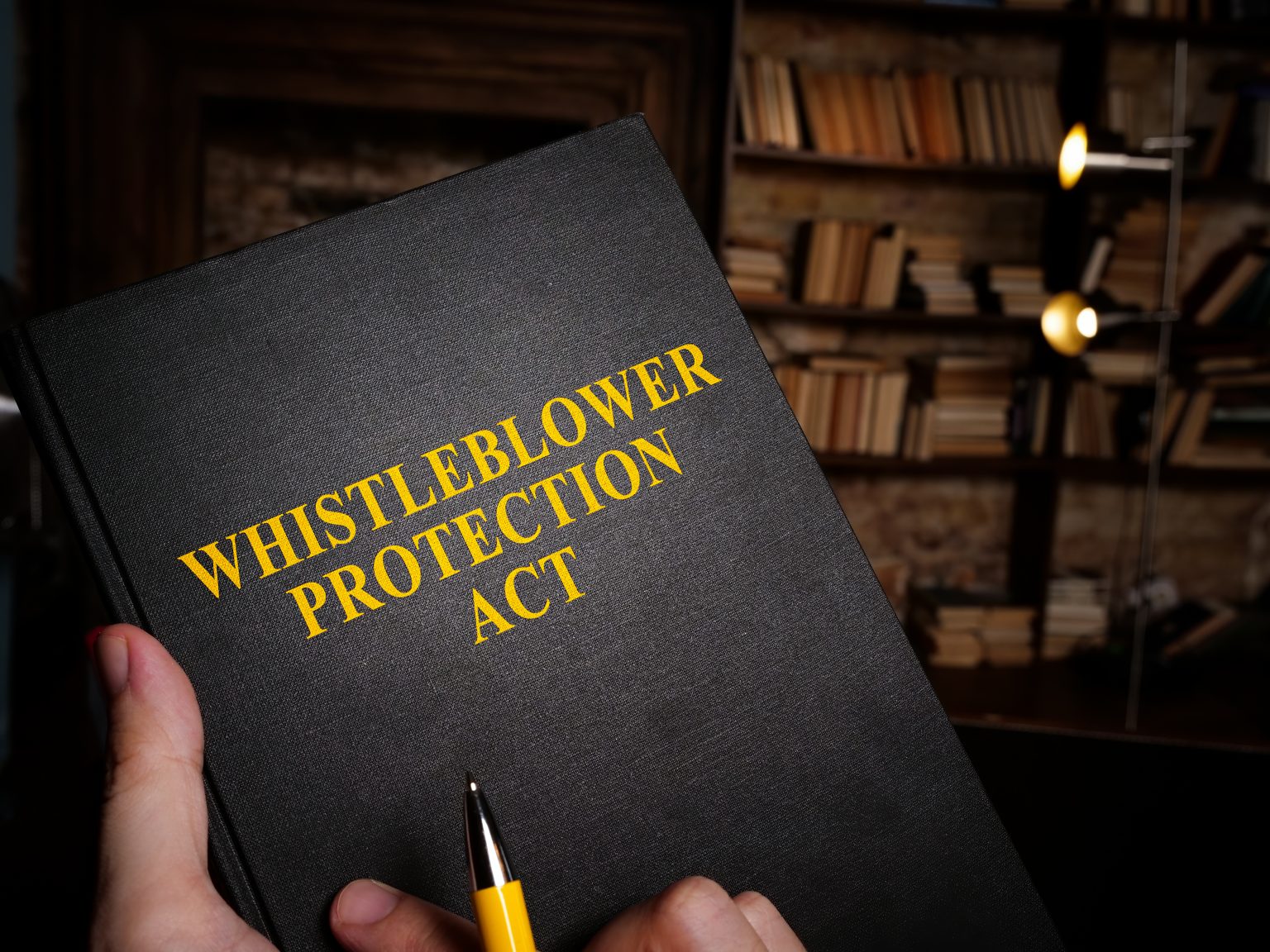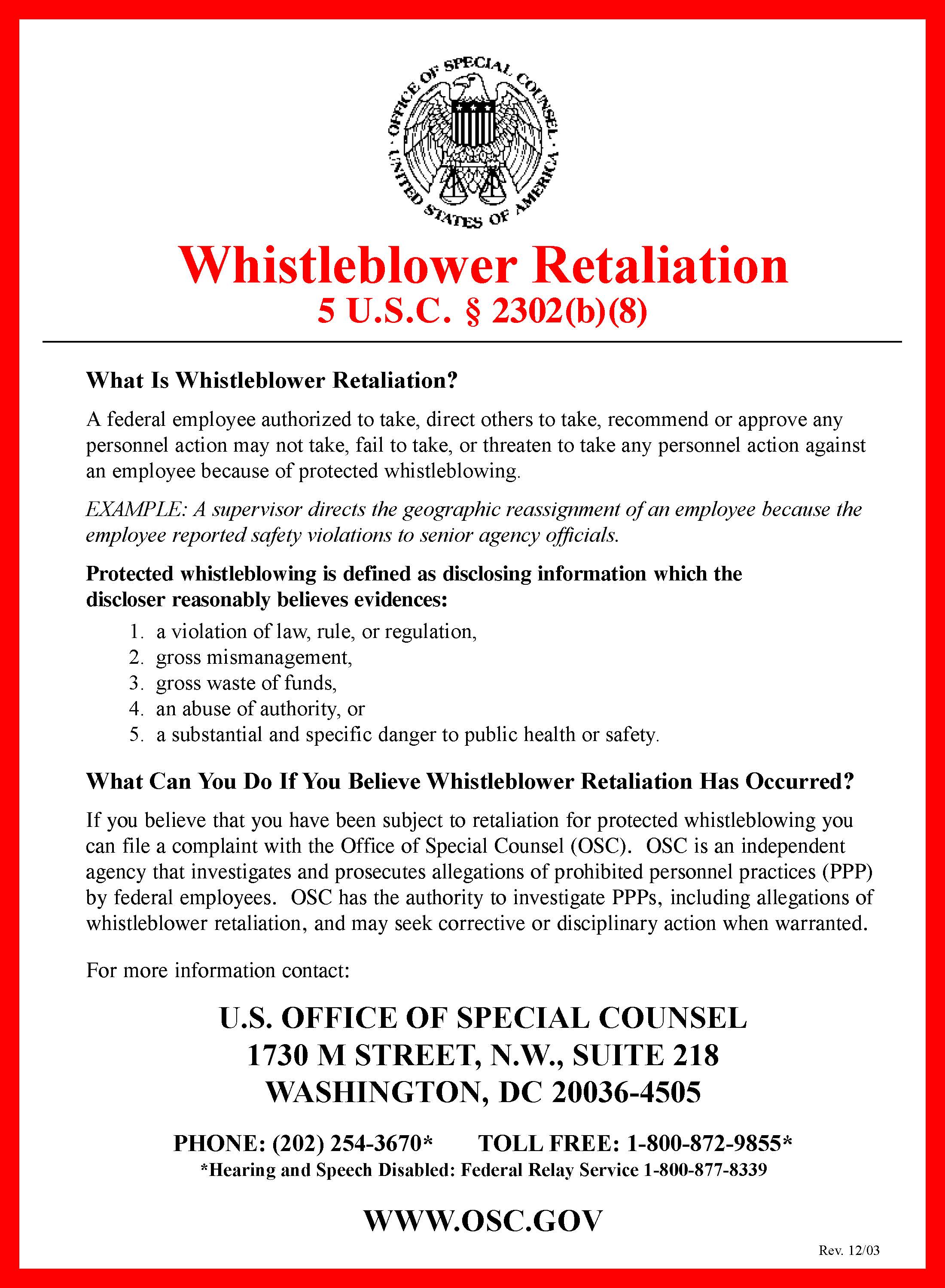World Updates | Update information about politics and social around the world
Whistleblower Protection Laws: A Guide To Safeguarding Individuals And Promoting Transparency
Safeguarding individuals exposing wrongdoing and promoting transparency and accountability. Whistleblower Protection Laws: A Guide To Safeguarding Individuals And Promoting Transparency aims to provide a comprehensive overview for the general audience of the current legal framework for whistleblower protection and related issues.
Editor's Notes: Whistleblower Protection Laws: A Guide To Safeguarding Individuals And Promoting Transparency has published on June 23, 2022. Whistleblower protection is a critical issue that affects all of us. When whistleblowers come forward, they put their careers, their reputations, and even their lives on the line to expose wrongdoing. We must do everything we can to protect them.
We did the analysis, digging into the facts, and putting together this guide to help you

Whistleblower protection act book at the library. | ELLINT - Source ellint.net
understand whistleblower protection laws and their importance.
Table of Contents
1. What are whistleblower protection laws?
2. Why are whistleblower protection laws important?
3. What are the different types of whistleblower protection laws?
4. What are the benefits of whistleblower protection laws?
5. What are the challenges to whistleblower protection?
6. What can be done to improve whistleblower protection?
Transition to main article topics
Whistleblower protection laws are a critical part of a healthy democracy. They protect individuals who come forward to expose wrongdoing, and they help to ensure that the public has access to the information they need to hold those in power accountable.
FAQ
This comprehensive FAQ section provides answers to frequently asked questions and addresses prevalent misconceptions regarding whistleblower protection laws, empowering individuals to understand their rights and responsibilities while promoting transparency and accountability.

Whistleblower Protection Law: The OECD Countries Experiences and How - Source transparency.org.my
Question 1: What are the key elements of whistleblower protection laws?
Whistleblower protection laws encompass a set of legal provisions designed to safeguard individuals who report unlawful or unethical conduct within organizations or government agencies. These laws typically include provisions that prohibit retaliation against whistleblowers, establish procedures for reporting wrongdoing, and provide legal remedies for those who face retaliation.
Question 2: Who is considered a whistleblower under these laws?
Whistleblower protection laws generally define whistleblowers as individuals who report illegal or improper activities that they have witnessed or have reasonable grounds to believe have occurred. This definition may vary slightly depending on the specific law and jurisdiction, but it typically includes employees, contractors, and other individuals who come forward with information about wrongdoing.
Question 3: What types of retaliation are prohibited under whistleblower protection laws?
Prohibited retaliation includes a wide range of adverse actions taken against a whistleblower in response to their reporting of wrongdoing. This can include termination of employment, demotion, harassment, intimidation, threats, and other forms of discrimination.
Question 4: How can individuals report wrongdoing anonymously?
Many whistleblower protection laws allow individuals to report wrongdoing anonymously, providing them with the option to protect their identity from potential retaliation. However, it is important to note that anonymous reporting may have limitations, such as reduced credibility or difficulty in obtaining legal remedies.
Question 5: What are the potential consequences for organizations that retaliate against whistleblowers?
Organizations that retaliate against whistleblowers may face significant legal consequences. These consequences can include fines, reinstatement of the whistleblower, back pay, compensatory damages, and punitive damages.
Question 6: How can whistleblower protection laws promote transparency and accountability?
Whistleblower protection laws play a crucial role in promoting transparency and accountability by encouraging individuals to report wrongdoing without fear of retaliation. By providing legal safeguards for whistleblowers, these laws empower individuals to expose unethical or illegal conduct, leading to investigations, corrective actions, and ultimately, a more transparent and accountable society.
Understanding whistleblower protection laws is essential for both individuals and organizations. Individuals should be aware of their rights under these laws, while organizations have a responsibility to create a culture that supports whistleblowing and prevents retaliation.
By adhering to whistleblower protection laws and fostering a culture of integrity, we can strengthen transparency, accountability, and the overall well-being of our society.
Tips
Understanding the nuances of whistleblower protection is crucial for ensuring the safety of those who report wrongdoing and promoting transparency. Here are some essential tips to guide individuals and organizations:
Tip 1: Know Your Rights
Familiarize yourself with the legal framework that protects whistleblowers. Whistleblower Protection Laws: A Guide To Safeguarding Individuals And Promoting Transparency provides a comprehensive overview of statutes and regulations aimed at safeguarding individuals who report illegal or unethical conduct.
Tip 2: Choose the Right Reporting Mechanism
Determine the most appropriate channel for reporting misconduct. Internal reporting systems may offer confidentiality and protection within the organization, while external reporting options, such as government agencies or the media, may be necessary if internal mechanisms are unavailable or compromised.
Tip 3: Gather Evidence
Collect and preserve any evidence that supports your report. This may include emails, documents, or witness statements. Maintaining a record of the events and actions taken will strengthen your case.
Tip 4: Protect Your Identity
Consider anonymous reporting options or request confidentiality to safeguard your personal information. Reprisals against whistleblowers are unfortunately common, so it's essential to minimize the risk of retaliation.
Tip 5: Seek Support
Connect with organizations or individuals who specialize in supporting whistleblowers. They can provide guidance, legal assistance, and emotional support throughout the reporting process.
Tip 6: Understand the Limitations
Recognize that whistleblower protection laws may have limitations. Not all forms of reporting are protected, and whistleblowers may face challenges when reporting certain types of misconduct.
Summary
Empowering whistleblowers is vital for safeguarding the public interest and holding individuals and organizations accountable for their actions. By understanding the protections available, reporting wrongdoing effectively, and seeking support when needed, we can foster a culture of transparency and integrity.
Conclusion
Whistleblower protection laws empower individuals to report wrongdoing without fear of reprisal. Understanding the tips outlined in this guide can help ensure the safety of whistleblowers and promote transparency in our society.
Whistleblower Protection Laws: A Guide To Safeguarding Individuals And Promoting Transparency
Whistleblower protection laws play an essential role in safeguarding individuals who disclose wrongdoing and promoting transparency. They help build trust in institutions, strengthen accountability, and deter misconduct.
- Confidentiality: Protecting whistleblowers' identities and preventing retaliation.
- Reprisal Protections: Prohibiting employers from taking adverse actions against whistleblowers.
- Investigative Mechanisms: Ensuring impartial and thorough investigations of whistleblower reports.
- Rewards and Incentives: Acknowledging and motivating whistleblowers for their courage and public service.
- Anonymous Reporting: Allowing individuals to report wrongdoing without fear of retribution.
- Cross-Border Cooperation: Facilitating international collaboration in protecting whistleblowers.

Department of Defense Office of Inspector General > Components - Source www.dodig.mil
The strength of whistleblower protection laws varies globally. Some countries have comprehensive frameworks, while others offer limited or no protections. The effectiveness of these laws depends on factors such as cultural attitudes, political will, and enforcement mechanisms. In recent years, there has been a growing recognition of the importance of whistleblowing, leading to the strengthening of protection laws in many jurisdictions. Protecting whistleblowers is crucial for maintaining public trust and ensuring accountability in the face of corporate or government misconduct.
![]()
Whistleblower protection concept icon Stock Vector Image & Art - Alamy - Source www.alamy.com
Whistleblower Protection Laws: A Guide To Safeguarding Individuals And Promoting Transparency
Whistleblower protection laws are essential for safeguarding individuals who report wrongdoing or illegal activities. These laws provide legal protections for whistleblowers from retaliation, harassment, or other adverse actions by their employers or other parties. By protecting whistleblowers, these laws encourage individuals to come forward and report wrongdoing, which is crucial for promoting transparency and accountability in the workplace and society as a whole.

IRS Whistleblower Protection Laws - Source whistleblowerlaw.com
Real-life examples of whistleblower protection laws include the Whistleblower Protection Act of 1989 in the United States, which protects federal employees who report wrongdoing, and the Public Interest Disclosure Act of 1998 in the United Kingdom, which protects individuals who disclose information in the public interest. These laws have been successful in protecting whistleblowers and encouraging the reporting of wrongdoing, leading to increased transparency and accountability. Understanding the importance of whistleblower protection laws and their practical applications is essential for fostering a culture of transparency and accountability in various settings.
The effective implementation of whistleblower protection laws requires a comprehensive approach that includes strong legal frameworks, robust enforcement mechanisms, and a supportive culture that encourages individuals to report wrongdoing without fear of retaliation.
Key Insights:
| Benefit | Implication |
|---|---|
| Protects individuals from retaliation | Encourages reporting of wrongdoing |
| Promotes transparency and accountability | Strengthens public trust |
| Supports good governance | Prevents corruption and abuse of power |
Conclusion
Whistleblower protection laws play a critical role in safeguarding individuals who report wrongdoing and promoting transparency in the workplace and society. By providing legal protections for whistleblowers, these laws encourage individuals to come forward and disclose illegal or unethical activities, ensuring accountability and preventing corruption.
Recognizing the significance of whistleblower protection is essential for fostering a culture of transparency and accountability in organizations and governments. It empowers individuals to speak up against wrongdoing without fear of reprisal, leading to a more just and equitable society.